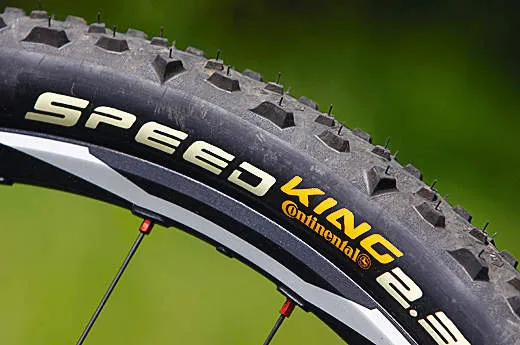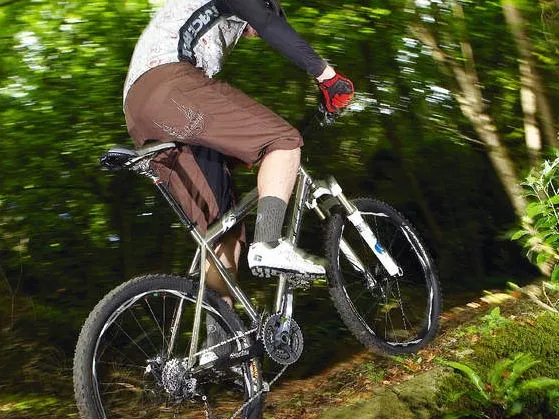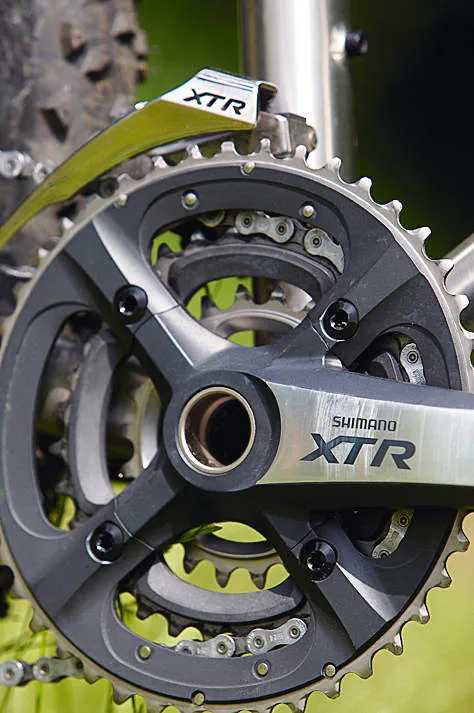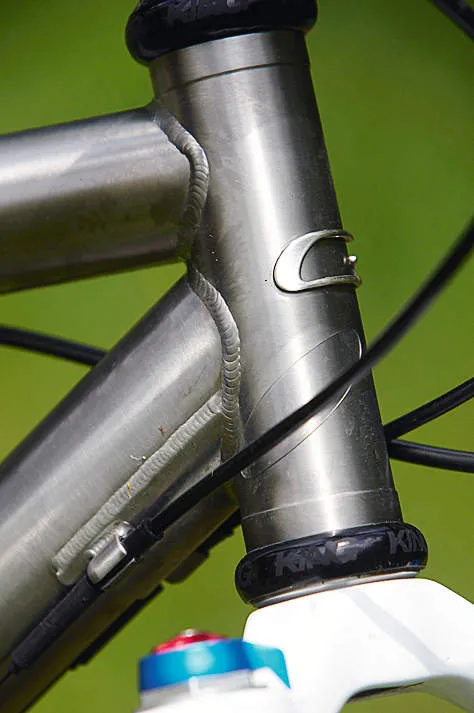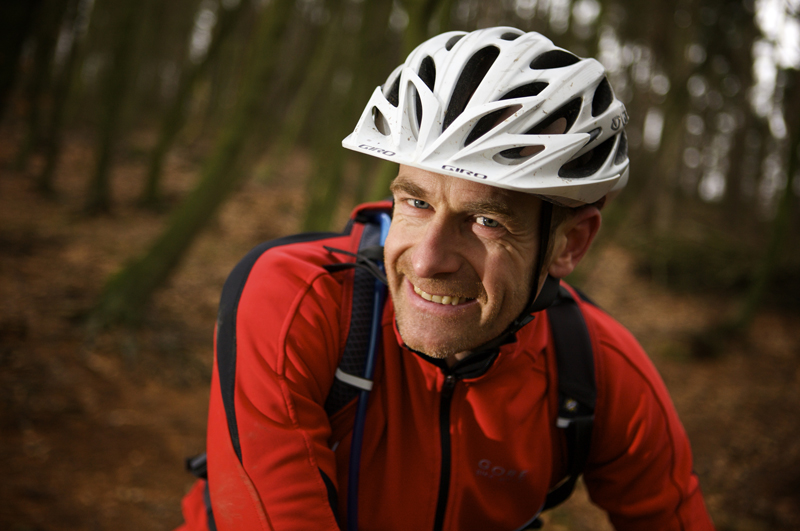The titanium Altitude frame is the flagship steed of the British born and bred Genesis bikes range. A whippy little steed, it makes for a fast, responsive and enjoyable singletrack or race partner, although it can get out of its depth in tricky situations.
Ride & handling: Assured mileage covering machine, but not so happy when trail gets 'angry'
With its relatively steep angles (for a trail bike – it's slack compared to most cross-country race machines) and short fork, the Genesis feels aggressively poised, and if you’re riding smoothly it has a natural nose for sniffing out traction in turns.
It’s also quick to get round the back of trees or other apex obstacles, helping you weave a tight line through the woods. There’s none of the lazy wander, control squandering lift or front wheel flop of slacker bikes up steep climbs either.
It’s still less skittish and better behaved at speed than classic 71- or 73-degree angled cross-country frames though, making it an easy and assured mileage covering machine.
A decent degree of vibration dampening and shock absorption from the frame, along with well balanced sizing mean it’s comfortable all day long too.
Where it begins to come unstuck is when the trail and handling loads increase, at which point the main frame can’t cope rotationally.
The throat gusset spreads fore and aft load from the fork okay, but there’s noticeable flex and yaw in the front end of the bike if you start fighting inside the natural line of the front wheel or trying to cut across the grain of the trail.
This becomes even more apparent if you’re running a longer fork than the intended 120mm, and our experiments with a Maxle-equipped 140mm RockShox Revelation weren’t a success.
Fore and aft twist makes it tricky to keep the bike in line when the trail gets carved up into latticed ruts or there are suddenly more rocks than gaps to cover, and it’s prone to dumping you over the bars on big drops as well.
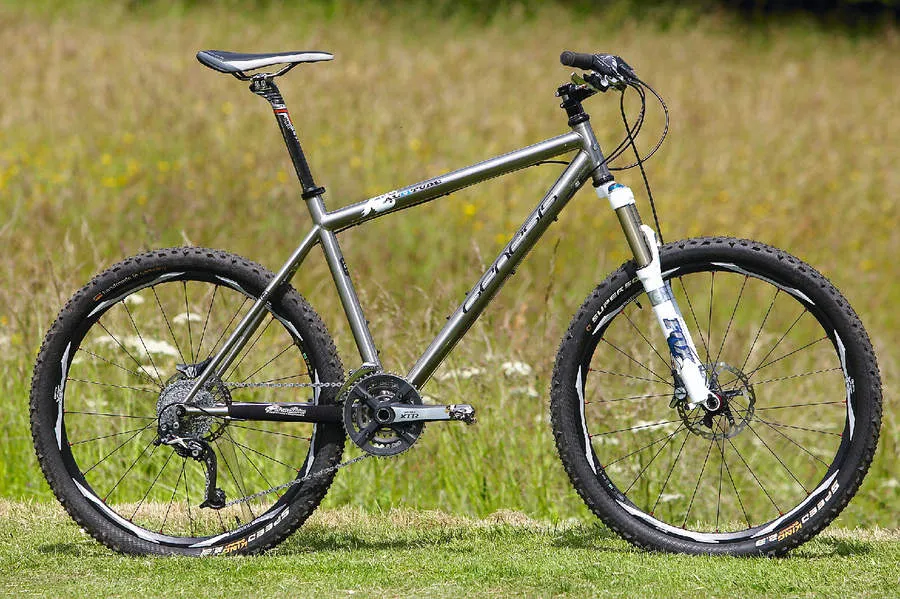
Frame: Light, well constructed, comfortable and good value
Despite being several hundred pounds cheaper than most titanium frames, the Genesis gets some nice detailing to separate it from the hordes of generic and often poorly built Ti frames you’ll find on mail order websites.
The subtly ring-reinforced head tube is strengthened with an open-backed gusset that also carries the underslung cable guide mounts. A bi-oval down tube supports the bottom bracket shell while the deep oval-to-round tapered chainstays end with cowled dropouts to maximise the weld area. A bridged disc mount with a curved torque pipe at the base of A-frame seatstays completes a neat and tidy back end.
Brake hose routing under the top tube and the exposed gear cable’s down tube placement keeps the bike’s lines clean and shifts smoother than you might expect. In true British-designed style there are two bolts under the down tube for a mudguard and an extended seat tube with forward facing slot.
The seat tube is the only butted pipe in the frame, allowing for a direct fit rather than shimmed seatpost inside the bolted seatpost clamp. Given the weight is a very competitive 1,620g (3.6lb), the use of frame stickers rather than etching is the only real giveaway of the Altitude’s fairly modest budget.
Equipment: Works best when it’s built light and lively, with a 120mm or 100mm fork
The bike in the photos you’ll see here is the pimped-out ride of Shimano’s UK brand manager, but we’ve been running our own Genesis Ti frame for a while as well. After rotating through various spec choices, it’s clear that this is a bike that works best when it’s built light and lively.
The geometry is designed around a 120mm (4.72in) fork and, after trying 130mm (5.1in) and 140mm (5.5in) numbers, we’d definitely stick with that length to avoid excess flex. The slack, for cross-country, angles mean it would be fine with a 100mm (3.93in) fork such as a RockShox SID as well, although that would lose some straight-line impact absorption.
In a similar fashion, the frame can’t really exploit heavier, fatter wheels, so it’s worth going as light as you can afford to accentuate the natural agility of the bike. Apart from those, there are no special frame requirements, so just enjoy the fact you’re saving plenty of money over the Genesis's titanium rivals before you even start building.
